EU projects
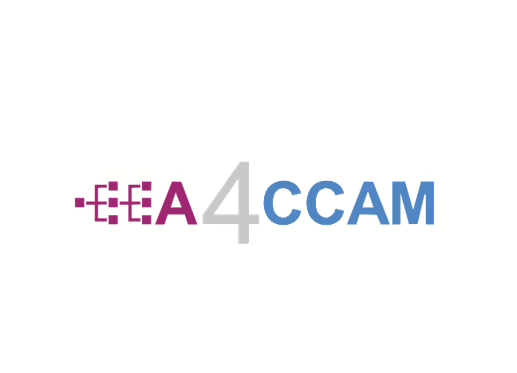
EEA4CCAM
EEA4CCAM – Electrical and Electronic Architecture for Connected, Cooperative and Automated Mobility – is a project running from June 2025 to June 2028 under the Horizon Europe programme (RIA) with a budget of €5.99 million. Its goal is to develop a new electrical and electronic architecture that enables the safe, cyber-secure, and resource-efficient deployment of Connected, Cooperative, and Automated Mobility (CCAM) applications. The project introduces a centralised, upgradable, and open-source system design, validated through Level 4 automation use cases. By promoting harmonisation and standardisation, EEA4CCAM paves the way for the software-defined vehicle and strengthens Europe’s competitiveness in future mobility.
CLEPA, as the European association of automotive suppliers, leads stakeholder engagement and clustering activities and contributes to dissemination, standardisation, and international cooperation. This ensures that suppliers’ perspectives are fully integrated, supporting innovation uptake and interoperability across the CCAM ecosystem.
For suppliers, EEA4CCAM is crucial as it lays the foundation for next-generation vehicle architectures, helping the industry remain competitive in the transition toward smarter, safer, and more sustainable mobility.

EFFEREST
EFFEREST is an EU-funded project with 11 partners spanning the EV value chain.
The project employs a co-design framework featuring a user-centric energy management system. This system integrates adaptive digital twins, model-based optimization, predictive control, and AI, utilizing V2X, fleet data, and historical information. Innovations in powertrains, batteries, and HVAC systems are demonstrated for energy efficiency, comfort, safety, and affordability.
EFFEREST aims to enhance Europe’s competitiveness in digital technologies, positioning EVs for global appeal.
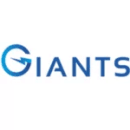
GIANTS
The GIANTS (Green Intelligent Affordable Nano Transport Solutions) project strives to transform affordable mobility in emerging and advanced markets through an innovative electric vehicle platform.
Unlike traditional skateboard solutions, GIANTS offers modularity, scalability, and interoperability for L5, L6, and L7 light electric vehicles. Featuring a scalable e-drivetrain, standardized vehicle control system, roof solar panels, and a vehicle configuration tool, the project aims to lower electric vehicle ownership costs, provide climate-neutral urban transport, enhance air quality, and position the EU as a global transport leader.
Together with CLEPA and other 22 partners, GIANTS seeks to demonstrate prototypes to raise awareness and encourage adoption by major manufacturers.

MODI
The European Commission, through the Horizon Europe framework program, has awarded a funding grant to a 29-partner strong consortium, to test and validate the implementation of CCAM solutions for real-logistics operations.
The MODI project will demonstrate automated heavy-haul vehicles without safety drivers use cases on the motorway corridor from Rotterdam in the Netherlands to Moss in Norway, crossing four national borders and demonstrating terminal operations at four different harbours and terminals en route. Automated transport will significantly contribute to improving European transport and logistic chains. The MODI research project will make substantial steps toward identifying and resolving barriers preventing this from coming true.
Pre-LSDemo
Pre-LSDemo will support large-scale demonstrations of Connected, Cooperative, and Automated Mobility (CCAM) across Europe. The project prioritises societal readiness, inclusivity, and ethical design to ensure a trusted, transparent, and people-centric mobility ecosystem.
PULSE
PULSE aims to advance wireless charging solutions for electric vehicles. Unlike wired charging, which can create safety risks, accessibility barriers, and visual clutter while concentrating energy demand in the evenings, wireless bidirectional charging provides seamless, unobstructive solution suitable for both overnight charging and dynamic fleet operations.

Respect
RESPECT takes it name from flexible, safe & efficient REcycling of Li-on batterieS for a comPetitive, circular, and sustainable European ManufaCTuring industry.
RESPECT is a four-year project, started in June 2022, funded by EU under Horizon Europe Research and Innovation program and the BATT4EU Partnership, which aims to contribute to the development of the battery supply chain in Europe. Coordinated by Orano Mining the RESPECT project includes 15 full partners and 3 associated partners from 9 countries.
The RESPECT project aims at transforming the batteries’ recycling process and at opening new sustainable and circular markets in Europe along the Li-ion batteries value chain, thus reinforcing security of supply and its strategic autonomy.

Synergies
SYNERGIES is an EU-funded project with 33 partners, who will collaborate on a new open-source platform that displays collected data for testing and validating self-driving vehicles in Europe.
The key objectives of the SYNERGIES-project include:
- Definition of user-requirements
- Optimising data collection and analysis
- Development of training material and piloting report
CLEPA will contribute to the project with promotional and dissemination efforts through its network of stakeholders.
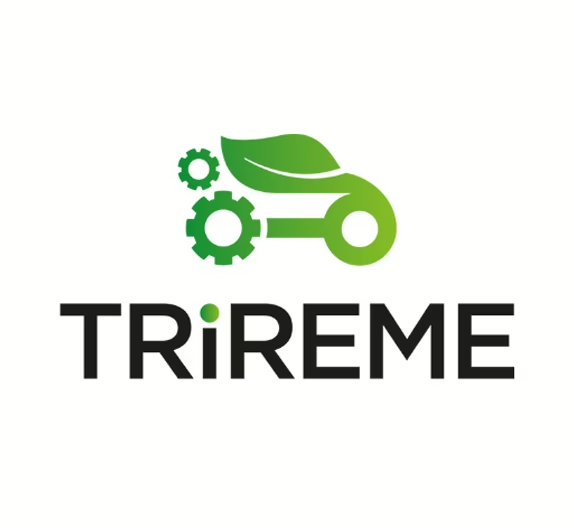
TRIREME
TRIREME – Digital & Green Skills Towards the Future of the Mobility Ecosystem runs from March 2024 to February 2028 under the Erasmus+ programme (Pact for Skills / Automotive Skills Alliance) with a budget of around €4 million. Bringing together over 30 partners from 15 countries, the project supports the automotive-mobility ecosystem in the digital and green transition by mapping skills needs, defining new job profiles, and developing training to enable upskilling and reskilling across the EU.
CLEPA helps identify skills gaps, contributes to training content and strategies, and ensures suppliers’ perspectives are included in sectoral skills policies.
TRIREME works to provide the tools and resources needed to adapt to technological and societal changes, ensuring access to relevant training and helping the industry stay competitive.

VERA
The EU-funded VERA project will develop, optimise, and demonstrate innovative tailpipe retrofit solutions to address particle and NOx emissions, particularly considering NH3 emissions. The project will ensure system adaptability with a central development methodology, allowing fast and accurate optimisation for each application. In addition, VERA will design and demonstrate brake retrofit solutions, applicable both as first installation on new vehicles as well as replacement parts. The combination of filtration systems with innovative discs and pads aims at maximum brake emission reduction of road vehicles, while particles from metro applications will be addressed with a filtration system and properly machined pads.
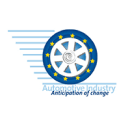
Anticipation of Change in the Automotive Industry
The European project “Anticipation of Change in the Automotive Industry” started its second phase in December 2009. Co-financed by the EC DG Employment and Social Affairs it will run until the end of October 2010. The main objective is to gather all relevant stakeholders to review the evolution of the automotive sector, to open a dialogue between the different actors and to help them to adapt to the change.
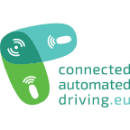
ARCADE
Aligning Research & Innovation for Connected and Automated Driving in Europe
ARCADE is a Coordination and Support Action that coordinates consensus-building across stakeholders for sound and harmonised deployment of Connected, Cooperative and Automated Driving (CAD).
ARCADE supports the commitment of the European Commission, the European Member States and the industry to develop a common approach to development, testing, validation and deployment of CAD in Europe and beyond.
The ARCADE project will run for three years and aims to establish a joint stakeholders forum in order to coordinate and harmonise automated road transport approaches at European (e.g. strategic alignment of national action plans for automated driving) and international level (in particular with the US and Japan).

DRIVES
Development and Research on Innovative Vocational Educational Skills.
Digital and other key technologies are reshaping the foundations of industry and the wider global economy. This offers tremendous opportunities for innovation, growth and jobs, but it also requires skilled and adaptable individuals who are able to drive and support change.
The Development and Research on Innovative Vocational Educational Skills project (DRIVES) will deliver human capital solutions to supply chain SMEs through the establishment of an Automotive Sector Skills Alliance, covering all levels of the value chain (vehicle production, automotive suppliers and automotive sales and aftermarket services). Through the network of the partners, DRIVES outcomes will be disseminated EU-wide to more than 300 associations, bringing together more than 270,450 companies of all sizes, representing over 7 million workers.
The Project draws on the expertise and input from 11 entities, chaired by ACEA, supported by CLEPA, ETRMA – and selected GEAR 2030 members – will be responsible for setting the industrial strategy and direction for the project.
For further information, please contact Pilar Pérez at p.perez@clepa.be or Nathalie Gminder at gminder@clepa.be

ENSEMBLE
European Truck Platooning.
Platooning technology has made significant advances in the last decade, but to achieve the next step towards deployment of truck platooning, an integral multi-brand approach is required. Aiming for Europe-wide deployment of platooning, ‘multi-brand’ solutions are paramount. It is the ambition of ENSEMBLE to realise pre-standards for interoperability between trucks, platoons and logistics solution providers, to speed up actual market pick-up of (sub)system development and implementation and to enable harmonisation of legal frameworks in the member states.
ENSEMBLE wants to communicate the economic, societal and environmental impact of decisions surrounding platoon forming and dissolving. ENSEMBLE also strives to modernize the transport system by finding an optimal balance between fuel consumption, emission level, travel times and impact on highway traffic flow, resulting in reduced impacts on climate change, air pollution, noise, health and accidents.

eSafety Challenge Project
The eSafety Challenge is a European Commission-funded project that focuses on innovative vehicle safety technologies and the potential lives to be saved on the roads through increased deployment of these technologies. An important obstacle for deployment is the lack of awareness among both policymakers and end users, which is affecting policy support, user expectations and readiness for change.

EUNICE
The main objective of this project is the design, development and validation of a complete in wheel motor assembly prototype (electric motor, power electronics, reduction gear, structural parts and wheel), based on a McPherson corner suspension topology, to meet the defined car top level specifications. The main technical risks associated with the use of an in-wheel concept are the thermal stress under extreme operation conditions, vehicle dynamics, driveability, safety and durability.
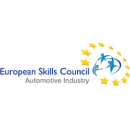
European Sector Skills Council for the Automotive Industry
The European Sector Skills Council for the Automotive Industry is an 18-month project, funded by the European Commission DG Employment, which aims at establishing a networking platform with focus on skills issues in the automotive sector. Project partners CLEPA, ETRMA and industriAll – with the support of ACEA and CEEMET – have been trusted with the establishment of this networking platform which will enable and facilitate the exchange of best practices at European level in terms of anticipating and managing skills requirements for the automotive industry. In order to realize this objective, the Skills Council will be set up from a broad range of stakeholders, such as industry representatives (employers’ organisations and trade unions), research institutes, automotive clusters, public authorities and training providers.
For more information please contact Nathalie Gminder at gminder@clepa.be

FAME
The FAME (Framework for coordination of Automated Mobility in Europe) Project funded by the European Commission under Horizon Europe is an extension of the previously concluded ARCADE (Align Research & Innovation for Connected and Automated Driving in Europe) project.
The 23 consortium partners project aims at directly supporting the work of the CCAM Partnership and the European Commission for the identification of gaps and future needs for R&I as the sharing of knowledge, data and experiences is the requirement for the development of Connected and Automated Driving (CAD).

GO4SEM
Global Opportunities for SMEs in Electro-Mobility
The GO4SEM project will detect and analyze the specific technology and product needs in emerging e-mobility supply chains in global automotive markets outside Europe. It will use this analysis to assess and evaluate strengths and weaknesses of global e-mobility supply chains and define possible opportunities for European SME’s for a competitive entry in those supply chains, whereby a special focus on ICT will be taken. As such it will indicate R&D priorities for the European SMEs and other stakeholders in order to improve or develop the adequate technologies for these opportunities. As a consequence, the GO4SEM project will give input through the core group members and the associated partners assisting the European Commission in setting up ICT focused research agendas for Horizon 2020 and the future European Green Vehicles Initiative PPP, especially with respect to dedicated initiatives targeted SMEs. In addition, since the complete e-mobility supply chain is considered, it can be expected that in these recommendations will stimulate discussions and agendas in other areas.

iMobility Challenge
Promoting energy efficient, safe and sustainable mobility
iMobility Challenge is a 24 months project aimed at demonstrating, promoting and boosting the deployment of ICT systems for efficient and sustainable mobility. The project will highlight both off-the-shelf products (i.e. technologies that have just been launched on the market) and emerging technologies addressed by current research. In particular focus will be placed on current EU Research conducted in the field of cooperative systems for energy efficient and sustainable mobility.
Intelligent mobility is notably characterised by efforts to better integrate and connect intelligent drivers, intelligent cars and intelligent infrastructures together, and this can be achieved through cooperative systems. The benefits of ICT systems for efficient and sustainable mobility should be better disseminated to end-users, decision-makers, the research community and the industry. The added value of iMobility Challenge will be to raise awareness of such benefits among those distinct target groups.

